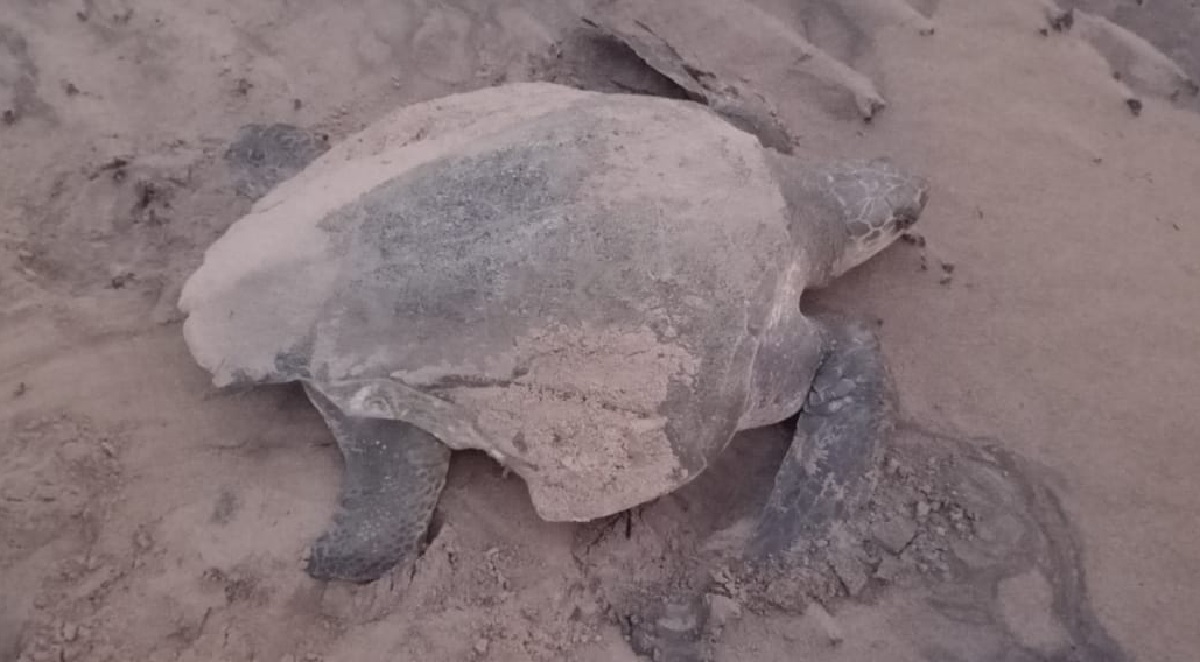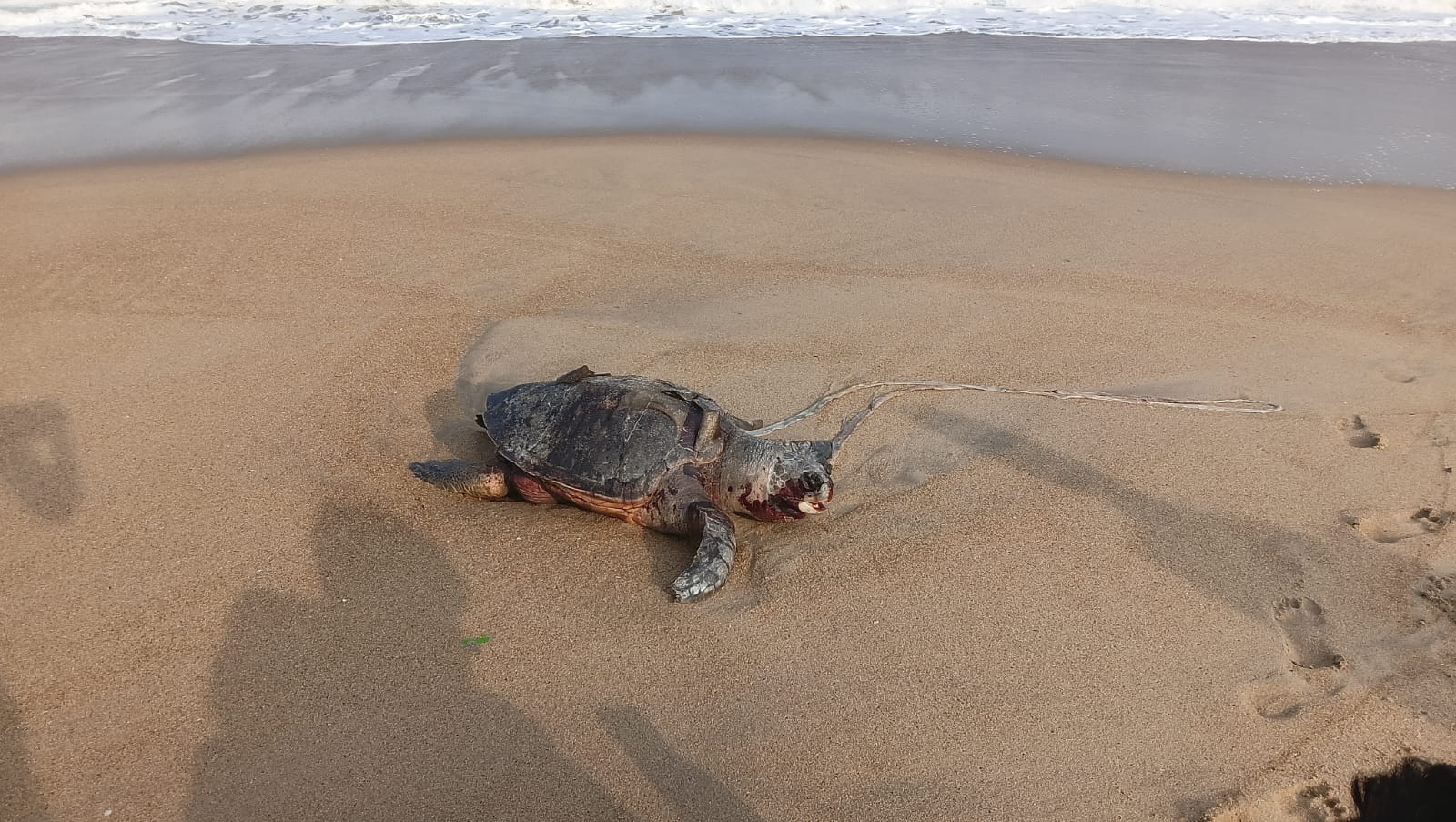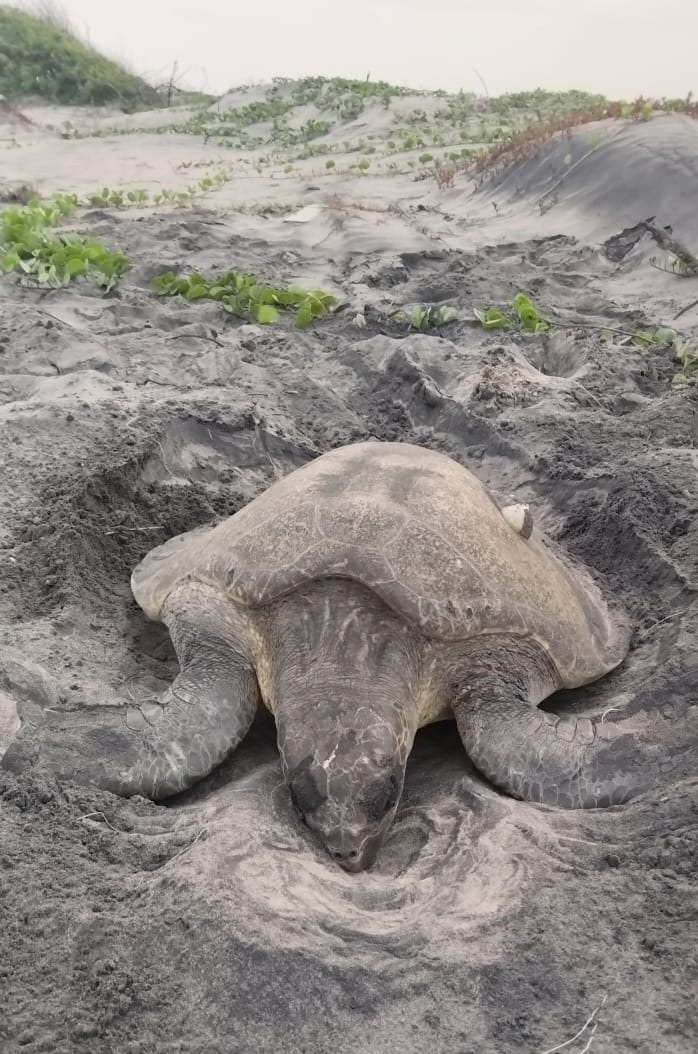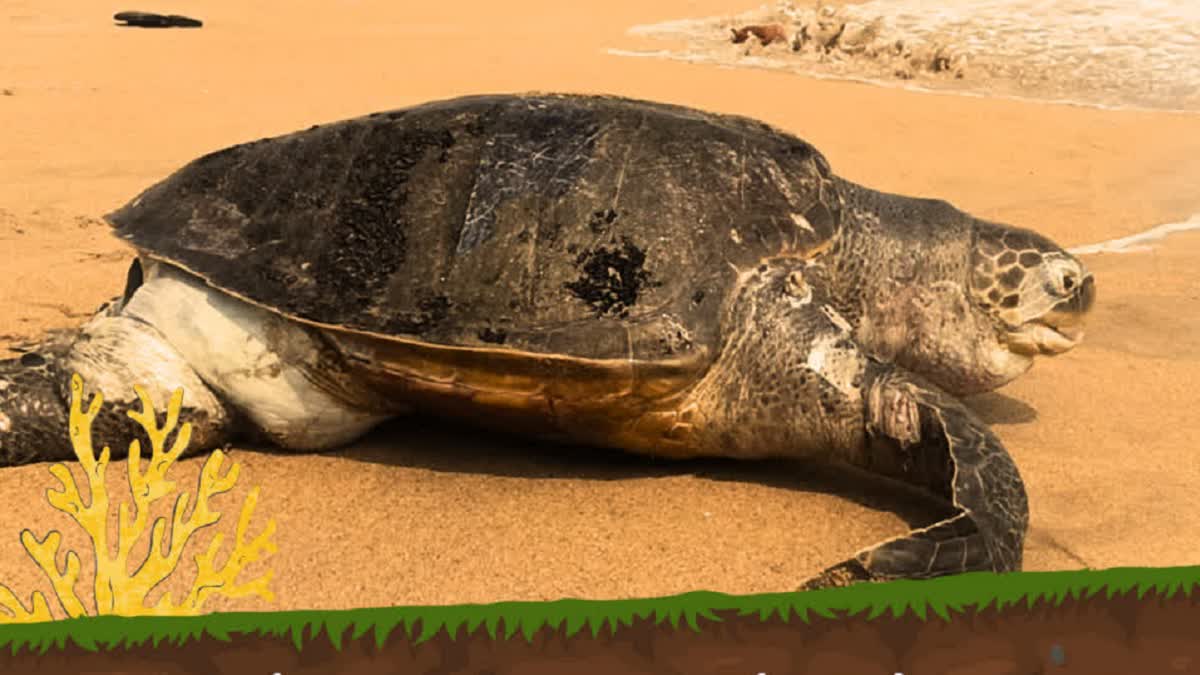Chennai: Sea turtles, the world's oldest and most important marine species, are dying at an alarming rate along Chennai's coast—between Neelangarai and Kovalam—triggering serious worries among environmentalists. The fatalities are being blamed on human activity, but a thorough probe exposes the causes and recommends steps required to safeguard these crucial species.
A Deepening Crisis
Talking to ETV Bharat, Sugraja Dharani, founder of the Tree NGO, spoke about the causes of deaths and preventive measures. The organisation has been working on sea turtle conservation since 2002, and their efforts involve engaging fishing communities, conducting patrolling, and creating awareness across Tamil Nadu, Andhra Pradesh, southern Odisha, and Goa. “These initiatives are coordinated with government agencies such as the forest department, fisheries department, coastal police, and coast guard,” he said.

Key Causes of Deaths
Fishing Practices: December to April is the nesting season for sea turtles. Turtles migrate from the Gulf of Mannar to beaches in Tamil Nadu, Andhra Pradesh, and Odisha to lay eggs.
As part of this migration, they swim close to the Chennai coast, often within 5 km of the shore. However, motorised fishing boats, which are required by law to fish beyond 5 nautical miles (9.26 km), often operate closer to the coast to save fuel costs.
Similarly, during the prawn and crab fishing season, nets are cast close to the shore, which traps turtles. Some researchers have found that prawns are a favourite food for turtles, who get attracted to them and get caught in nets.
Fishermen too corroborated the version, saying that during every fishing activity, at least four turtles get caught in their nets, with some of them even dying.
Data revealed that fewer turtles laid eggs last year in Tamil Nadu and other global nesting sites such as Costa Rica, Mexico, and Odisha’s Rushikulya.
“Every alternate year, female turtles come back to the same spot to lay their eggs. More turtle fatalities from entanglements in fishing nets have been reported this year as a result of an increase in turtle migration,” per the experts.
“Other significant risks that result in harm and death include pollution, abandoned fishing nets, and plastic waste,” they said.

Statistics Highlighting the Problem
From December 30, 2024, to January 2025:
Chennai Coast: 212 turtle deaths were recorded between Neelangarai and Kovalam.
Chengalpattu Coast: 142 turtles were found dead between Semmanjeri and Alambarai.
A comparison of annual data shows a sharp rise in deaths: 220 turtles in Chennai and 133 in Chengalpattu since the start of 2024, totalling 353 fatalities.
Contribution of Turtles to Ecological Balance
When turtles eat sea snails, mushrooms, and fungi, they release oxygen that may be trapped in the soil.
Similarly, all turtles love to eat jellyfish. These jellyfish eat a lot of fish fry and eggs. These turtles keep the proliferation of jellyfish in check.
Hawksbill turtles scavenge and eat the sponges that may be present on coral reefs in the ocean, making the area a habitat for small fish.
Green sea turtles only eat grass, algae, and plants. When they eat them, the entire area is clean. This results in more fish being produced in that area, which is needed for commerce. This is a very important production factor.
If a thousand baby turtles go into the sea, only one baby turtle will reach reproductive age. The other 999 baby turtles become prey to big fish. The goal of fishermen is to catch big fish. We will eat those fish. Therefore, they are a part of the food chain in our lives.
Just as tigers and lions are important to the forest, turtles migrate to different parts of the ocean, keeping marine resources in balance. If turtles are saved, marine resources will be better.

Government and NGO Interventions
The Tamil Nadu government formed a task force on January 21, 2025, led by the Chief Wildlife Safety Officer and comprising officials from various departments, including the Department of Environment and Climate Change, Department of Fisheries, Coast Guard, and Coastal Protection Committee of the Tamil Nadu Government. Their mandate includes monitoring and preventing turtle deaths, conducting postmortem examinations to identify causes of death, educating fishermen about sustainable practices and legal compliance, and collaborating with coastal communities to enhance conservation efforts.
Preventive Measures
- Ensuring that mechanised boats fish beyond 5 nautical miles, as per the Tamil Nadu Marine Fishing Regulation Act, 2020.
- Training fishermen on safely releasing trapped turtles back into the sea after ensuring they recover from shock.
- Enhancing community awareness about the ecological importance of turtles.
Read More



